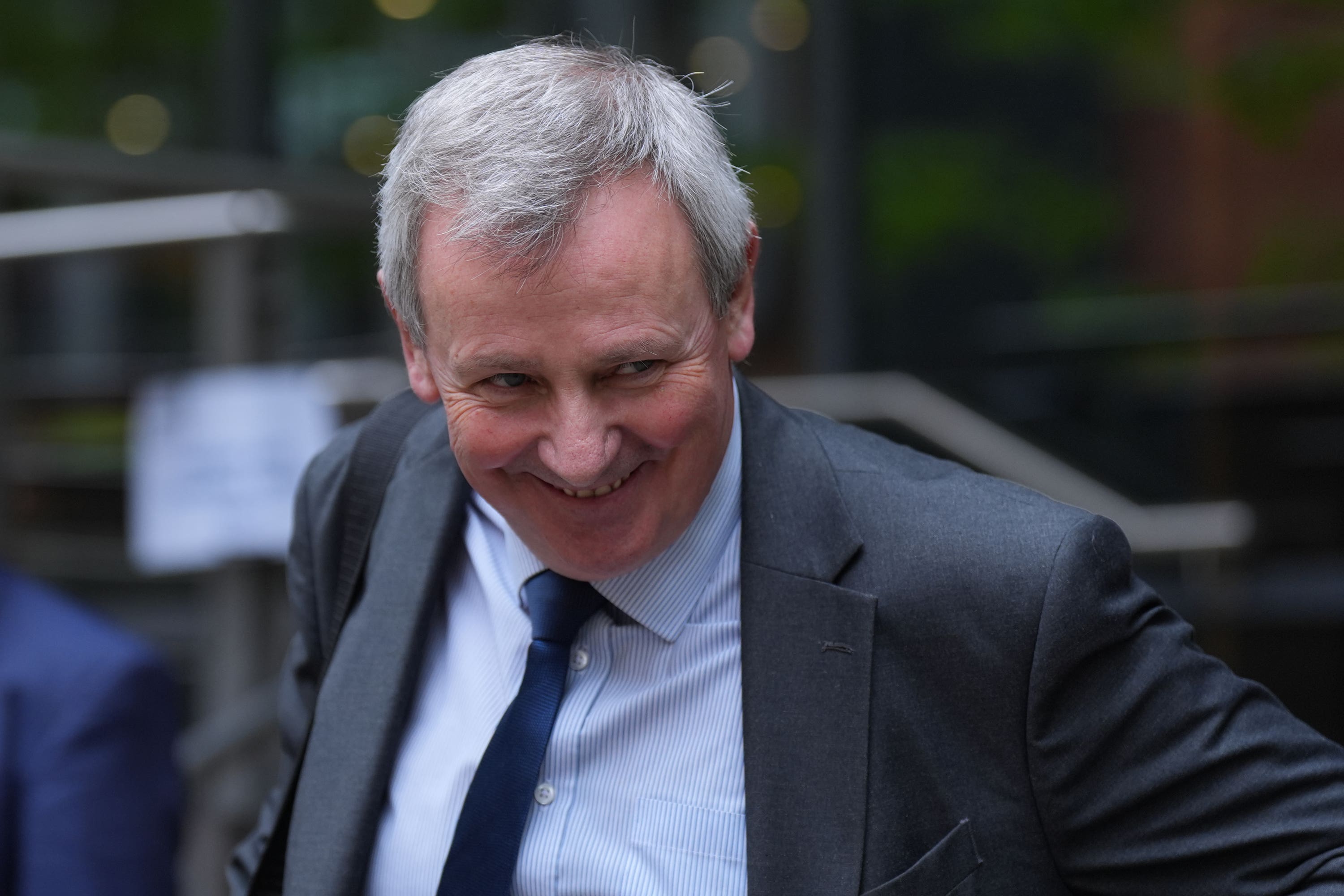Visit of Wuhan tourists to Larne ‘dispelled notion Covid could be contained’
A senior civil servant also said that Northern Ireland entered the pandemic with a ‘very tired’ health workforce.

The idea that Covid presented no threat outside of China was “very clearly dispelled” when a busload of tourists from Wuhan visited Co Antrim in the early days of the virus spreading, a public inquiry has heard.
The Covid-19 Inquiry, which is sitting in Belfast, heard evidence that an official attended the asymptomatic tourists to give health advice in January 2020, but that Northern Ireland’s chief medical officer Sir Michael McBride was “unconcerned” about the visit to Larne.
A senior civil servant also said Northern Ireland entered the pandemic with a “very tired” health workforce, and said that had the Stormont powersharing institutions not been suspended in the years before, the region may have been better prepared.
Richard Pengelly, who was permanent secretary at Stormont’s Department of Health during the pandemic, gave evidence to the inquiry – which is investigating the initial response to the pandemic, central government decision-making, political and civil service performance.
Discussing preparedness for a pandemic and whether it was believed it could be contained, lead counsel for the inquiry Clair Dobbin KC referred Mr Pengelly to an internal civil service message sent on January 25 2020, a week before any Covid cases had been recorded in the UK, and a month before a case was recorded in Northern Ireland.
The message said: “A group of Chinese tourists from Wuhan have arrived in Larne by bus from Scotland. They are staying overnight in Larne, touring today and heading to Dublin this evening.
“DOH (Department of Health) are deploying someone from the PHA (Public Health Agency) to provide advice to the group and to check their health. CMO (Chief Medical Officer) is not concerned.”
The message went on to say that the health minister Robin Swann would be calling then-first minister and deputy first minister Arlene Foster and Michelle O’Neill to brief them on the visit.
Mr Pengelly said that the tourists had all reported to be asymptomatic.
Any idea that this pandemic was something happening on the other side of the world and presented no threat to Northern Ireland was very clearly dispelled
Ms Dobbin said: “Any idea that this pandemic was something happening on the other side of the world and presented no threat to Northern Ireland was very clearly dispelled at this point in time.”
Mr Pengelly said: “Yes.”
Inquiry chairwoman Baroness Hallett said: “When people in your position and many others around you and in the rest of the UK were told that the two scenarios were – China contains or global pandemic – didn’t anybody stop and say we know visitors from Wuhan, the centre of where the disease started, have been visiting Northern Ireland?
“Doesn’t that indicate that back in January people should have been questioning whether China could ever contain it because people were travelling the world?”
Mr Pengelly said: “My understanding was that was why the assessment was that the second of the two scenarios was seen as the most likely situation, that it wouldn’t be contained within China.”
Mr Pengelly was also questioned about whether Stormont should have activated earlier a cross-department emergency response to the coronavirus pandemic.
We certainly entered the pandemic with a configuration of services that wasn’t as good as it could have been
Ms Dobbin quizzed the senior civil servant on why the Northern Ireland Central Crisis Management Arrangements (NICCMA) were not stood up when the first case of Covid was detected in the region on February 27 2020 or when the World Health Organisation (WHO) declared a global pandemic on March 12.
She said: “Even that didn’t prompt a whole of government response in Northern Ireland.”
Mr Pengelly said: “A whole of government response is absolutely essential in terms of the fight against the pandemic.
“When the architecture is formally triggered, because there was dialogue happening at a whole of government level, the value proposition of establishing formally these mechanisms on a specific date, these are fine judgements and it is difficult to say today is wrong and tomorrow is right.”
Northern Ireland was without devolved government from January 2017 until the institutions were restored in January 2020.
Mr Pengelly told the inquiry that the health system in the region had been in a “sub-optimal” state before Covid spread to the region.
He said: “The structure of our system wasn’t and isn’t right for the services we are trying to provide to the population of Northern Ireland.
“We certainly entered the pandemic with a configuration of services that wasn’t as good as it could have been.
“I think had an Executive been in place for three years, it wouldn’t have been perfect, but it would have been better than it was at the point we entered the pandemic.”
He added: “We entered the pandemic with a very tired workforce.”
Bookmark popover
Removed from bookmarks